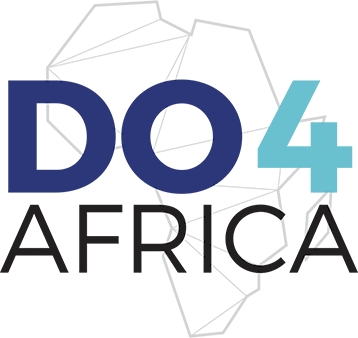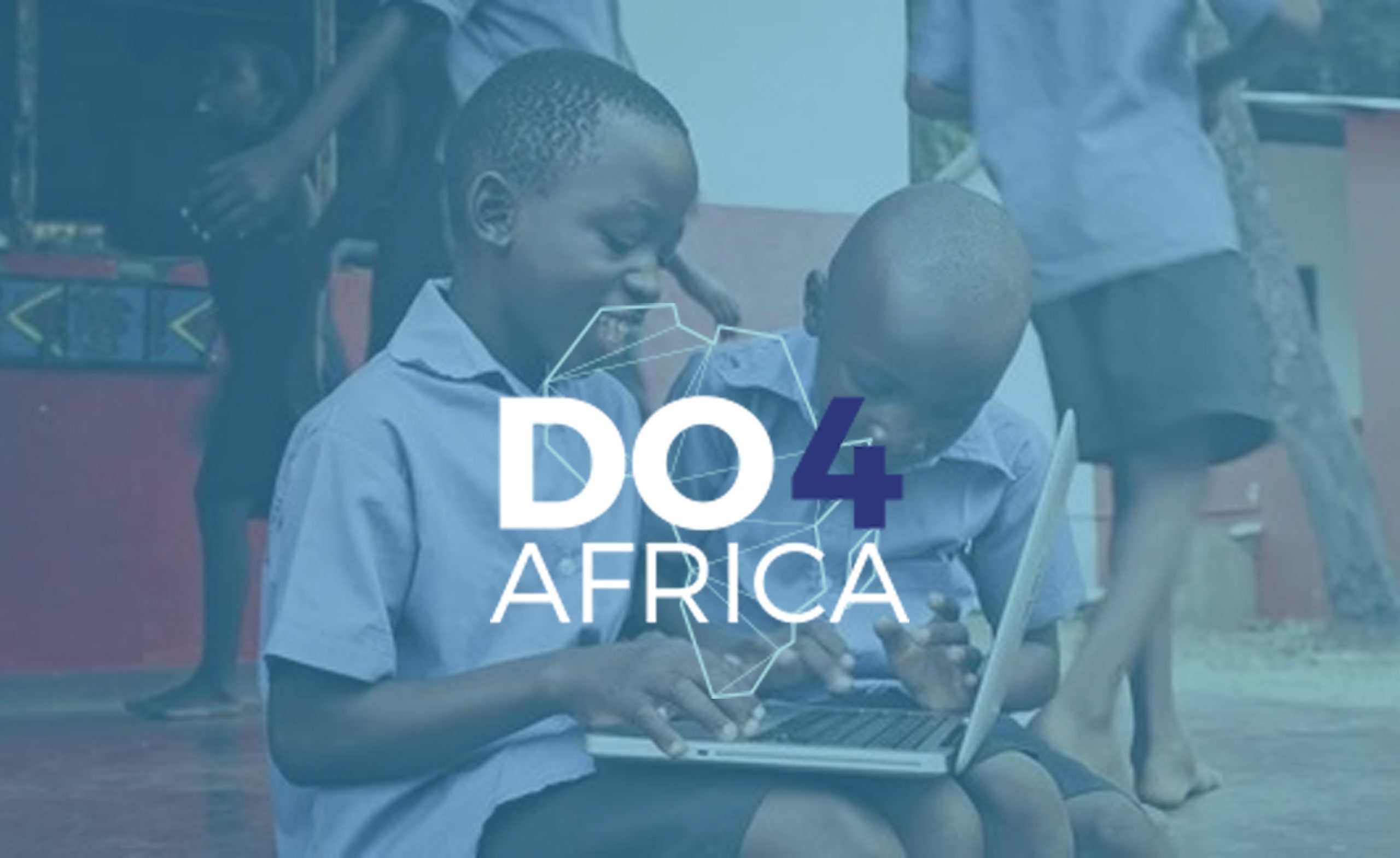Making educational content via eLearning platforms accessible to students is a vital step to support homeschooling in the context of the current pandemic due to the COVID-19 lockdown. Since Africa’s first COVID-19 case was recorded in Egypt in February, it has unleashed an economic and social crisis as well as an interruption of the educational sector in various countries of the continent.
Covid-19: the need to substitute educational institutions for eLearning portals
Most governments in Africa have temporarily closed educational institutions to reduce the spread of COVID-19. Other measures that have been taken include border closings and stringent social distancing policies, closing churches, bars, mandatory home-based work, etc.
Following the WHO recommendations to prevent the human-to-human transmission of COVID-19, different governments and institutions developed COVID-19 preparedness and response measures. Internet applications and systems that enable free access to education content on eLearning portals have been reinforced. There was a general recognition that technology will play an important role in the future of education in Africa, and the virus was a “wake-up call” to seriously address this issue.
As developed by the Ed Tech Hub, the main obstacles to the effectiveness of distance learning initiatives proposed by governments are the lack of:
- access to effective infrastructure and technology
- affordable and accessible electricity and connectivity
- access to appropriate ICT devices
- a good learning environment at home
- access to learning materials and an appropriate curriculum
- capacity building, personal development, and training
The need for connectivity
UNICEF has also reinforced that across the East and South African region, out of the nearly 65 million children remaining out of school, around one in two are not reached by any form of learning during the interruption of formal education.
During this pandemic, many eLearning platforms have been developed and others were awakened to support a very big number of students who were out of schools: primary schools, secondary schools, universities, and many other learning institutions.
According to UNESCO, 89% of students in sub-Saharan Africa do not have access to household computers, and 82% lack internet access. This means that those online classes cannot cater for all students.
“While efforts to provide connectivity to all must be multiplied, we now know that continued teaching and learning cannot be limited to online means”, stated Audrey Azoulay, UNESCO Director-General. “To lessen already existing inequalities, we must also support other alternatives including the use of community radio and television broadcasts, and creativity in all ways of learning”.
The rise of eLearning platforms
In this article we will look at different eLearning platforms in Africa and their contribution during this COVID-19 pandemic which has severely affected the education sector in Africa.
Do4Africa website currently counts 92 e-education projects all over Africa, some of them have implemented specific features to help students and pupils to keep learning during the lockdown period.

Number of eLearning platforms available on Do4Africa in different African countries
M-Shule:
Created in 2016, in Nairobi, by Claire Mongeau, an education professional, and Julie Otieno, a computing scientist, the startup M-Shule is the first adaptative and mobile managing platform conceived to foster the performances of elementary schoolers in sub-Saharan Africa. It aims at stopping school failure, which concerns more than 149 million children. Concretely, the Kenyan startup makes an academic support application available to academic institutions, students, and parents via web and via SMS to bypass the Internet access inconvenience. The program M-Shule can adapt to the learning pace, the difficulties, and easiness of each and anyone while using personal data, artificial intelligence, neurosciences, and cognitive psychology. Reports written by the application are sent to the parents and the schools benefiting from it to inform on the students’ progress and create a database to help other institutions to adapt and optimize their formation. First tested for six months by less than 400 learners split in 15 schools of Nairobi in 2017, M-Shule was officially launched in January 2018. Claire Mongeau wishes to highlight on developing her products at the Kenyan and the Continental scales.
To better support learners and individuals during the COVID-19 outbreak, M-Shule is offering a health and hygiene toolkit to encourage better understanding and knowledge of COVID-19 symptoms, prevention, and response.
Tuteria:
This Nigerian platform created by Godwin Benson and Abiola Oyeniy is a tool connecting people willing to develop skills with coaches who already own those targeted skills, in their close neighborhood. This platform allows for a personalized approach given the needs of each learner. Three years after it was launched, Tuteria consists of more than several thousand users coached by a few thousand qualified and approved coaches. The most followed courses are those of programming and web conception. Tuteria won several prizes such as the Africa Prize for Engineering Innovation in 2017. It has also benefited from subsidies from Niara-Africa and Microsoft Nigeria for its development.
Due to the COVID-19 pandemic, Tuteria is providing Zoom class sessions on Mondays, Wednesdays, and Fridays from 6 pm – 7.30 pm, to keep students sharp as they are preparing to resume their normal courses.
Shule Direct:
Shule Direct is a social and supportive company that provides secondary school students of Tanzania with digital studies tools. The company works with qualified teachers to create digitized notes, tutorials, quizzes, podcasts, or videos, and develop technological solutions for students throughout the country and the continent. The frame of reference is based upon the Cloud technology with a content that is organized and adapted to local studies programs. It consists of an API (Application Programmer Interface) that provides a unified interface allowing the extraction of appropriate content towards different peripherals and platforms.
During this COVID-19 pandemic, Direct Shule is one of many e-content platforms in Tanzania that have partnered with mobile providers to ensure the platform is available without any internet bundle required.
Passuneb:
Launched in 2014, Passuneb is an eLearning platform that provides free educational resources to students in primary and secondary school. The website offers online self-tests, an online library where users can access e-books, Virtual Labs for virtual reality fun science experiments, and career guidance. So, during this COVID-19 pandemic, Passuneb is among the content providers that have been made available for any parent’s utilization to ensure that they continue their children’s education from the comfort of their home.
Schoolap:
Created in 2018, Schoolap is an online platform offering web applications for schools, students, educators, and parents of students. The platform offers several services, such as online tuition payment, a teacher search engine, and online school administration management services.
During this COVID-19 pandemic, the website www.schoolap.com offers educational content adapted to the Congolese school curriculum that is accessible free of charge.
Snapplify:
Launched in 2011, Snapplify is a cloud-based edtech platform for the distribution of digital content to schools, corporates, and individual readers. Since 2011, Snapplify has grown and expanded into new markets in Africa and the United States, with offices across South Africa, as well as in Nairobi, Amsterdam, and New Jersey. Snapplify is backed by AngelHub Ventures, a venture capital company backed by former First National Bank CEO Michael Jordaan and the Harris family, as well as international investors.
During the COVID-19 school closures, Snapplify and some Kenyan publishing partners joined forces to provide free content to learners.
Snapplify also announced the launch of a new initiative in Kenya to help learners embark on their distance learning journey. This program is called Free Access – a program to provide free, short-term access to digital books, e-books, e-materials, and other resources for learners.
DigiClass:
Launched in 2017, in Burkina Faso, Digiclass is a platform for learning, revisions, and online tutoring for students in grades 6 to 12 as well as teachers and parents of students who want to regularly monitor the performance of their children. The project received the Special Prize Content of the Orange Prize of Africa and Middle East Social Entrepreneur 2018.
As stated by lefaso.net, the DigiClass team has decided to anticipate the launch of the eLearning component, initially planned for the start of the 2020-2021 school year as an initiative to mitigate the effects of the coronavirus disease in the education sector.
REB_e_learning:
The ongoing global issue of the Covid-19 pandemic has affected all sectors and resulted in the closing of schools in Rwanda to avoid the spread of the disease. The REB (Rwanda Education Board) has established an online learning platform to help students continue with their studies. While at home students keep learning and are supported by their teachers and parents using the REB eLearning platform. The platform is accessible on laptops, desktops, tablets, and smartphones. Two options are available, website and mobile application. It is possible to access the content without registration, however, there is no interaction with the teacher or tutor nor accomplishment of activities and assessments.
Mauritius Student Support Programme (SSP):
Using a student-centered approach, the Student Support Program aims at giving the students more ownership of their learning and helps them to become independent learners. In fact, the SSP brings digital learning to the fingertips of everyone. Student Support Programme (SSP) is an initiative of the Ministry of Education and Human Resources, Tertiary Education and Scientific Research in collaboration with the Open University of Mauritius (OU), Mauritius Institute of Education (MIE), and Mahatma Gandhi Institute (MGI). The site offers teaching materials for Grade 7 students and has just started with Grade 8 and is designed to ensure that the curriculum is respected.
This Student Support Programme was set up as part of the Nine-Year Continuous Basic Education, (NYCBE) aiming to support students in this COVID-19 outbreak by producing a number of video lessons for Lower Secondary students in grades 7-9.
Conclusion
The demand for distance learning has highlighted significant digital divides within countries; most children and young people in low-and middle-income countries do not have access to broadband or digital devices and are even more likely to be left behind. According to GSMA Mobile Internet Connectivity 2020, only 26% of Sub-Saharan Africa at the end of 2019, had adopted mobile internet.
However, African nations are working hard to bridge that digital divide through different programs such as the Africa50 innovation challenge that aims to bring connectivity to the last-mile. Technology has the potential to transform learning in Africa, so more investment in ICT should be made in all sectors of the economy, and particularly in education.

